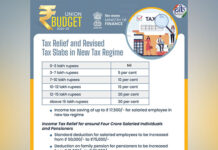Investing in the stock market provides many chances for Indian investors. However, they often find it challenging to decide whether to invest in Initial Public Offerings (IPOs) or well-established companies.
Each option has its own good and bad points, so it’s important to know about them to make smart investment choices.
This article explains pros and cons of investing in IPOs versus established companies specifically tailored to the Indian market, with insights from Stock Market Digest for better understanding.
Investing in IPOs:
Initial Public Offerings represent the debut of a company’s shares on the stock exchange. For many investors, IPOs carry an allure of potential high returns, often driven by hype and excitement surrounding the new entrant in the market.
Here are some pros and cons of investing in IPOs:
Pros:
- Potential for High Returns: IPOs can offer substantial returns in a short period if the company experiences significant growth post-listing. Investors who get in early may benefit from buying at a lower price before the stock price surges.
- Opportunity to Invest in Innovative Companies: Many IPOs represent innovative startups or companies with unique business models. Investing in such companies at an early stage can provide exposure to potentially groundbreaking technologies or disruptive industries.
- Liquidity Events for Early Investors: IPOs provide an exit opportunity for early investors, such as venture capitalists and private equity firms, who may choose to sell their stakes to the public, unlocking liquidity.
Cons:
- High Risk: Investing in IPOs is inherently risky, as the company’s track record in the public market is often limited or non-existent. Investors may face uncertainty regarding the company’s future performance and profitability.
- Volatility: IPO stocks can experience significant price fluctuations in the initial trading days or weeks, driven by market sentiment and speculative trading. This volatility may lead to short-term losses or gains for investors.
- Limited Information: Unlike established companies, which have a track record of financial performance and operations, IPOs may have limited information available for investors to conduct thorough due diligence, increasing the risk of investment.
Investing in Established Companies:
On the other hand, investing in established companies provides a sense of stability and reliability, backed by a track record of performance and market presence. Here are the pros and cons:
Pros:
- Stable Performance: Established companies typically have a proven track record of financial performance and stability, making them less volatile compared to IPOs. They often pay dividends, providing a steady income stream for investors.
- Access to Established Brands and Markets: Investing in established companies allows investors to gain exposure to well-known brands and established markets, reducing the risk associated with unproven business models.
- Available Information: Established companies are required to disclose financial information regularly, providing investors with ample data to analyze and make informed decisions.
Cons:
- Limited Growth Potential: Established companies may have already reached maturity, limiting their growth potential compared to IPOs. Investors seeking high-growth opportunities may find limited upside in these companies.
- Higher Entry Costs: Investing in established companies often requires a larger initial investment compared to IPOs, as their stock prices may be higher due to their proven track record and market capitalization.
- Less Excitement and Innovation: Established companies may lack the excitement and potential for disruptive innovation that IPOs offer, potentially resulting in lower returns over time.
| Aspect | IPOs | Established Companies |
| Pros | ||
| Potential for High Returns | IPOs can yield significant returns quickly. | Established companies may offer steady growth. |
| Opportunity for Innovation | Investing in IPOs can be exciting with new technologies or business models. | Established companies provide stability. |
| Liquidity Events | IPOs provide early investors with opportunities to sell their stakes and gain liquidity. | Established companies may offer dividends. |
| Cons | ||
| High Risk | IPOs come with higher risk due to limited track records. | Established companies generally have less risk. |
| Volatility | IPO stocks can be highly volatile in the early days of trading. | Established companies tend to be less volatile. |
| Limited Information | Investors may have limited data available for due diligence. | Established companies have a track record. |
Conclusion:
In conclusion, the decision to invest in IPOs or established companies depends on individual investors’ risk tolerance, investment objectives, and time horizon.
While IPOs offer the promise of high returns and innovation, they come with higher risk and volatility. On the other hand, established companies provide stability and a proven track record but may offer limited growth potential.
Ultimately, a well-diversified portfolio may include a mix of both to balance risk and reward for Indian investors.
Also Read: Underrated Sitharaman presiding over India’s biggest stock market bull run







